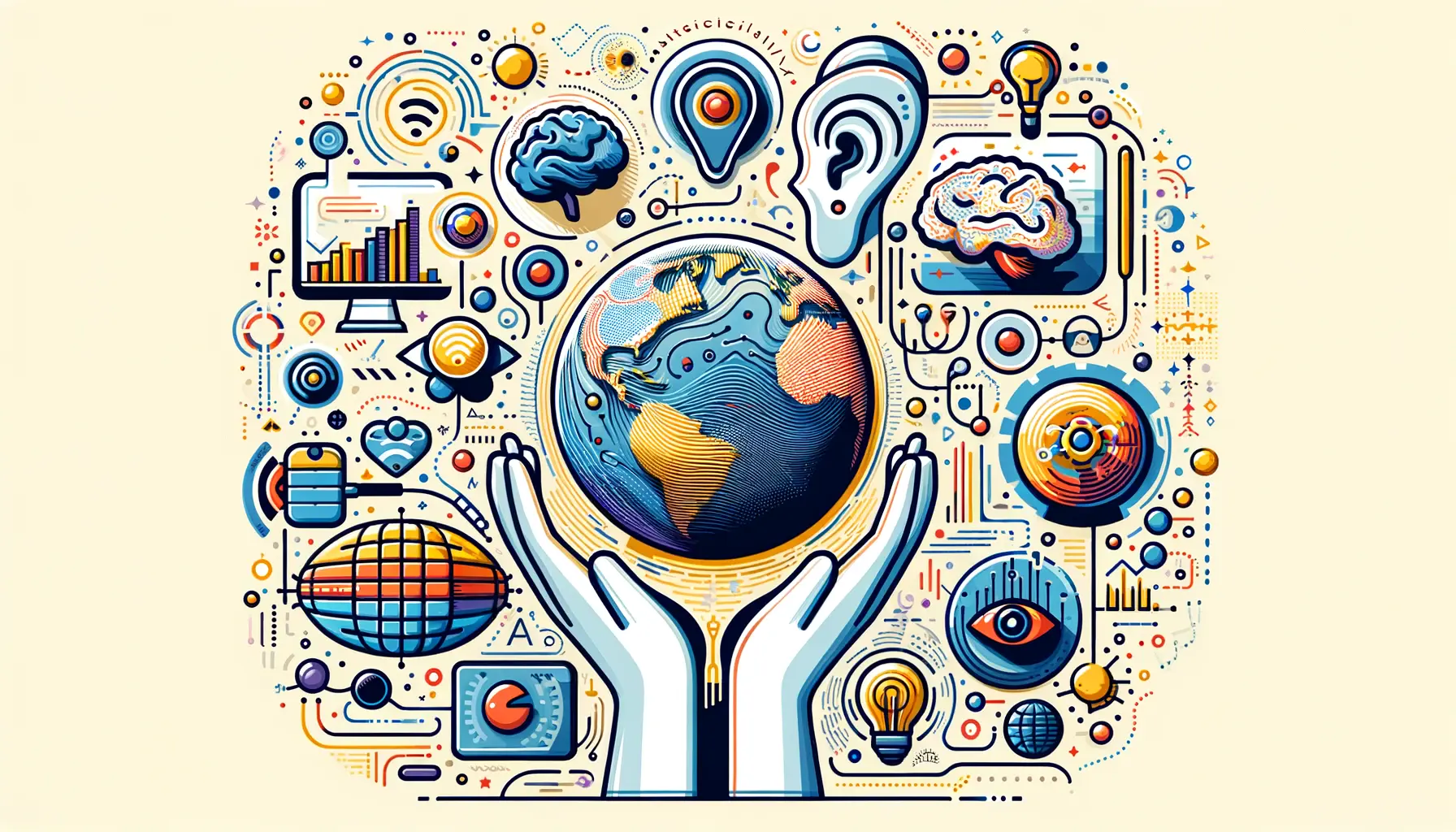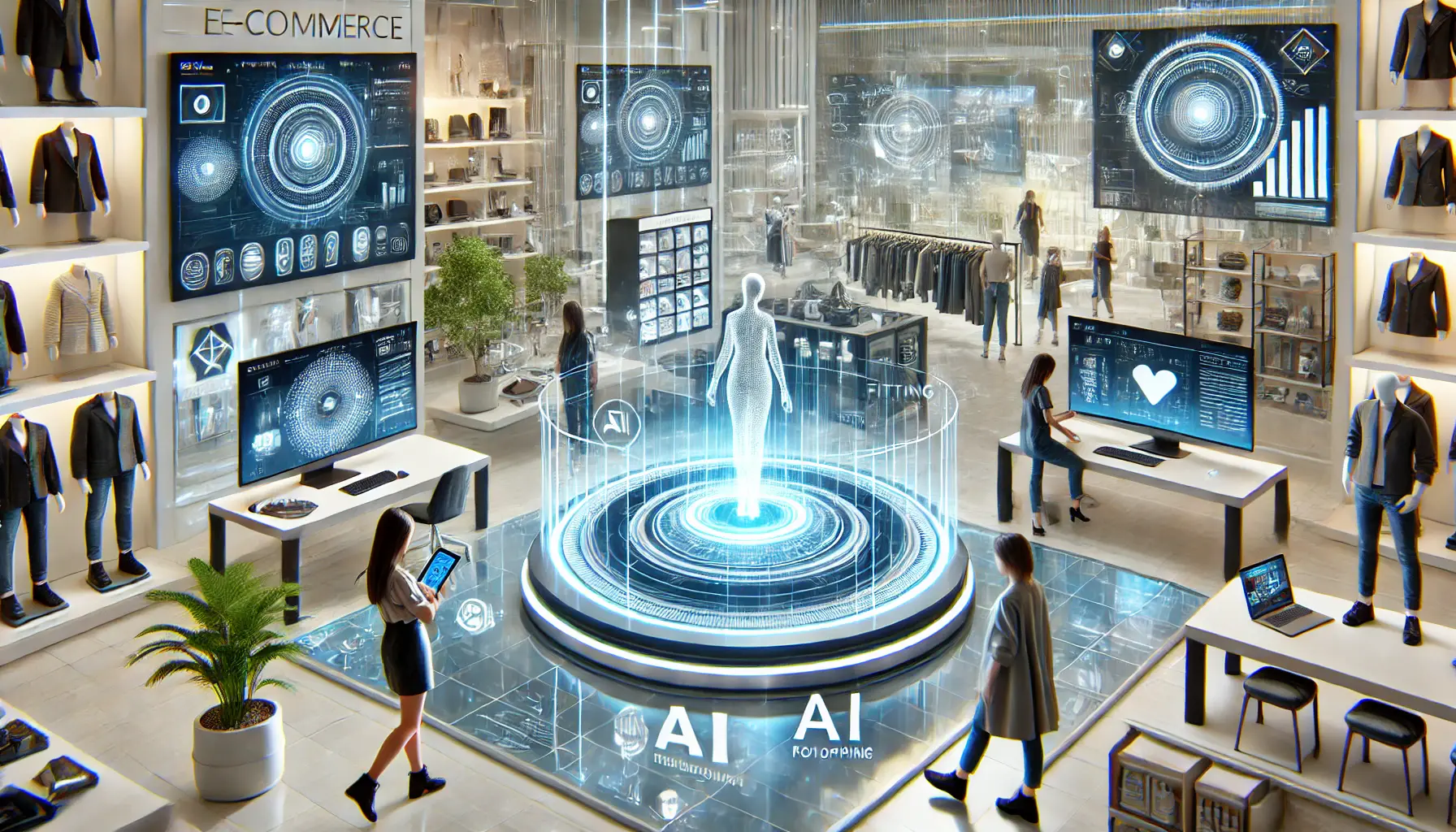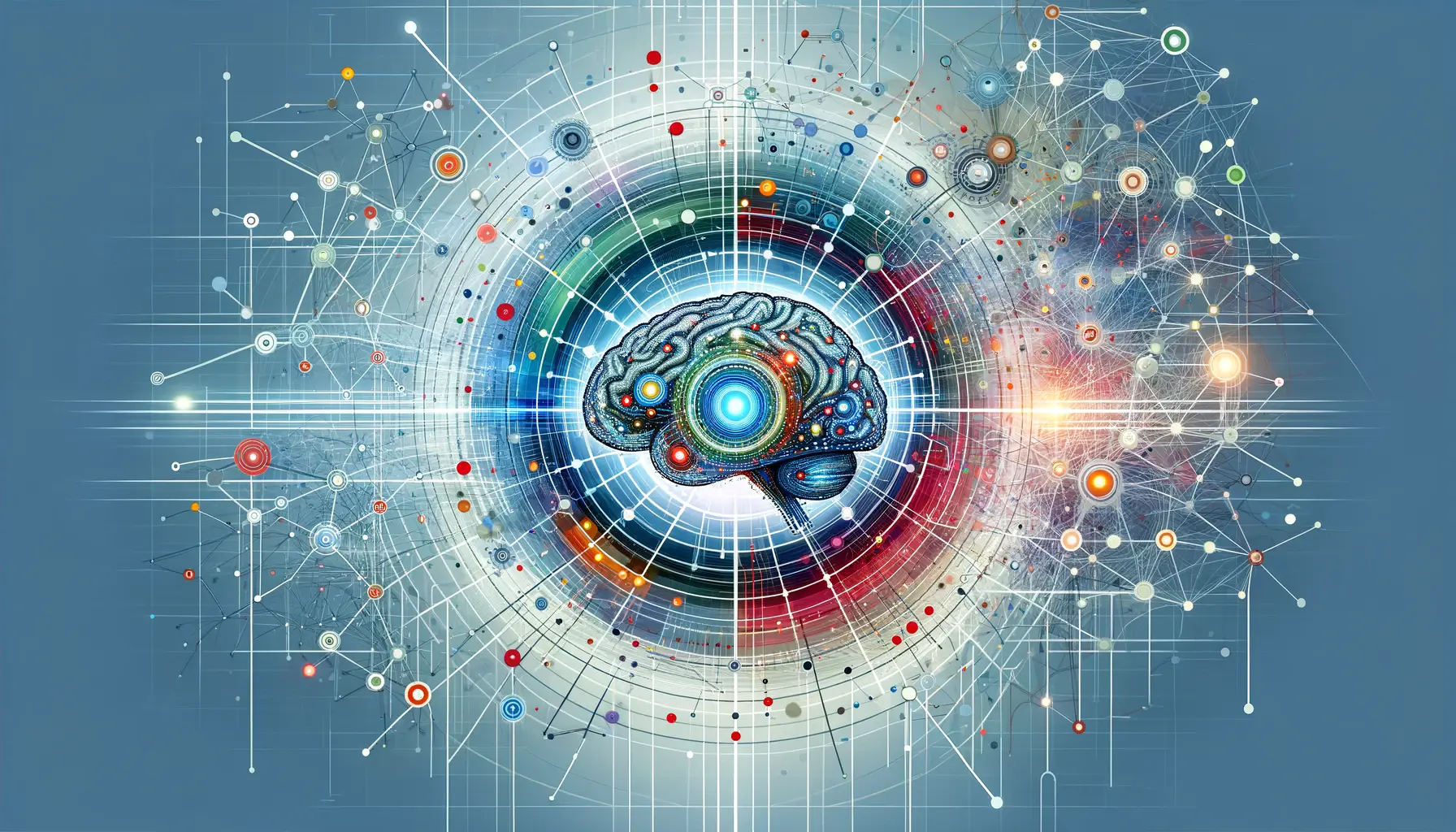The dawn of artificial intelligence (AI) has ushered in a new era of technological advancement, transforming how we interact with the digital world.
Among the myriad of developments, Grok AI stands out as a beacon of innovation, particularly in the realm of accessibility.
This AI model, developed with a focus on inclusivity, aims to bridge the gap between complex technology and everyday users, ensuring that AI benefits are within reach of all, regardless of their technical expertise.
Accessibility in AI is not just about making technology available; it’s about creating interfaces and experiences that are intuitive, user-friendly, and adaptable to diverse needs.
Grok AI embodies this principle by offering a platform that simplifies interaction with AI, making it more approachable for individuals from various backgrounds.
This initiative is crucial in a world where technology increasingly influences every aspect of life, from education and employment to personal entertainment and beyond.
- Grok AI’s Approach to Accessibility
- Enhancing Educational Opportunities through AI
- Facilitating Accessible Healthcare Solutions
- Empowering Businesses with AI-driven Solutions
- Advancing Social Good with AI
- Challenges and Ethical Considerations in AI Accessibility
- Future Directions in AI Accessibility
- Envisioning a Future Powered by Accessible AI
- Grok AI Accessibility FAQs
Grok AI’s Approach to Accessibility
The Importance of User-Friendly Interfaces
One of the core aspects of Grok AI’s accessibility strategy is the development of user-friendly interfaces.
These interfaces are designed to be intuitive, allowing users to navigate and interact with AI without the need for extensive technical knowledge.
By prioritizing simplicity and ease of use, Grok AI ensures that its benefits are not confined to tech-savvy individuals but are extended to a broader audience, including those who may be interacting with AI for the first time.
The key to widespread AI adoption lies in demystifying its complexity and presenting it in a manner that is accessible to all.
Adapting to Diverse User Needs
Grok AI’s commitment to accessibility is further demonstrated through its adaptability to diverse user needs.
Recognizing that users come with varying abilities and preferences, the platform incorporates features such as voice commands, text-to-speech, and customizable settings to accommodate different interaction styles and accessibility requirements.
This flexibility ensures that Grok AI is not just accessible but also personalized, offering a tailored experience that respects and responds to individual user contexts.
Moreover, by integrating feedback mechanisms within the platform, Grok AI continuously learns from user interactions, enabling it to evolve and improve its accessibility features over time.
This dynamic approach to user engagement highlights the importance of building technology that grows with its users, adapting to changing needs and emerging challenges in the digital landscape.
Enhancing Educational Opportunities through AI
Grok AI’s impact extends beyond mere accessibility, venturing into the realm of education where it serves as a pivotal tool for learning and development.
By making AI accessible to educators and students alike, Grok AI is at the forefront of transforming educational methodologies, making learning more interactive, engaging, and tailored to individual needs.
The integration of AI into educational settings democratizes access to information, breaking down traditional barriers to learning.
Grok AI, with its intuitive design and adaptive learning capabilities, exemplifies how technology can cater to diverse learning styles, ensuring that education is inclusive and equitable.
Personalized Learning Experiences
Grok AI leverages its advanced algorithms to offer personalized learning experiences.
This customization allows for:
- Adaptation to individual learning paces, ensuring that students can grasp concepts at their own speed without feeling pressured.
- Provision of tailored educational content that matches the learner’s interests and educational needs, making learning more relevant and engaging.
- Immediate feedback on assignments and quizzes, enabling learners to understand their mistakes and learn from them in real time.
The personalized approach not only enhances learning outcomes but also fosters a sense of autonomy and motivation among learners, encouraging them to take charge of their educational journey.
Breaking Down Geographical Barriers
Grok AI plays a crucial role in making education accessible to students in remote or underserved regions.
By providing:
- Access to a wealth of educational resources and tools that would otherwise be unavailable in certain geographical locations.
- Platforms for virtual classrooms and online collaboration, ensuring that distance is no longer a barrier to quality education.
- Opportunities for lifelong learning, allowing individuals to continue their education outside traditional classroom settings and well into adulthood.
This aspect of Grok AI not only broadens educational opportunities but also contributes to closing the global education gap, ensuring that learners, regardless of their location, have access to the tools they need to succeed.
Facilitating Accessible Healthcare Solutions
In the healthcare sector, Grok AI’s accessibility features are revolutionizing patient care and support.
By harnessing the power of AI, healthcare providers can offer more personalized and efficient services, improving patient outcomes and enhancing the overall healthcare experience.
Grok AI’s role in healthcare is a testament to the potential of technology to make significant, positive impacts on people’s lives.
Accessibility in healthcare is critical, and Grok AI addresses this by:
- Enabling remote patient monitoring, allowing healthcare providers to track patients’ health status in real-time, regardless of their location.
- Facilitating telehealth services, which provide patients with the ability to consult with healthcare professionals without the need for physical travel.
- Offering AI-driven diagnostic tools that help in the early detection and treatment of diseases, significantly improving patient prognosis.
Personalized Patient Care
The advent of Grok AI in healthcare has led to a more personalized approach to patient care.
This personalization is evident in:
- The development of treatment plans that are tailored to the individual needs and medical history of each patient, ensuring more effective care.
- The use of AI to analyze patient data and predict health trends, allowing for preventative measures to be taken before issues become more serious.
- Enhanced patient engagement through AI-powered apps and platforms that provide users with health tips, reminders for medication, and easy access to medical information.
By focusing on the individual needs of patients, Grok AI is setting a new standard for personalized healthcare, ensuring that patients receive the care that is most appropriate for their specific circumstances.
Improving Healthcare Accessibility
Grok AI’s impact on healthcare accessibility is profound, offering solutions that:
- Reduce the burden on healthcare systems by automating routine tasks and processes, allowing medical professionals to focus on more critical aspects of patient care.
- Make healthcare more affordable by streamlining operations and reducing the need for physical infrastructure and personnel.
- Empower patients by providing them with the tools and information they need to take an active role in managing their health.
The integration of Grok AI into healthcare is a clear indication of how AI can be used to not only improve the efficiency and effectiveness of healthcare services but also to make them more accessible to people from all walks of life.
Empowering Businesses with AI-driven Solutions
The corporate world is undergoing a transformation, with Grok AI leading the charge in integrating artificial intelligence into business operations.
This integration is not just about automating tasks; it’s about leveraging AI to gain insights, enhance decision-making, and ultimately drive growth.
Grok AI’s accessibility ensures that businesses of all sizes can harness the power of AI to remain competitive in a rapidly evolving marketplace.
By democratizing access to AI technologies, Grok AI is enabling businesses to:
- Optimize operations through intelligent automation, reducing costs and improving efficiency.
- Enhance customer experiences by providing personalized services and support, thereby increasing customer satisfaction and loyalty.
- Drive innovation by analyzing data to identify trends and opportunities for new products or services.
Streamlining Operations
One of the key benefits of Grok AI for businesses is the streamlining of operations.
This is achieved through:
- Automated data analysis, which provides real-time insights into business performance, allowing for quick adjustments to strategies.
- Intelligent process automation, which reduces the need for manual intervention in routine tasks, freeing up employees to focus on more strategic activities.
- Supply chain optimization, where AI algorithms predict demand and manage inventory levels, ensuring that businesses can meet customer needs efficiently.
The efficiency gained through these AI-driven solutions not only boosts profitability but also enhances the agility of businesses, enabling them to adapt to changes in the market more effectively.
Enhancing Customer Engagement
Grok AI also plays a crucial role in enhancing customer engagement by:
- Providing personalized recommendations and services based on customer data, thereby improving the shopping experience.
- Utilizing chatbots for customer service, which offer quick and accurate responses to customer inquiries, reducing wait times and improving satisfaction.
- Analyzing customer feedback and social media trends to gain insights into customer preferences and expectations, guiding product development and marketing strategies.
The ability to engage customers on a more personal level not only strengthens relationships but also drives loyalty and repeat business, key components of long-term success in the digital age.
Advancing Social Good with AI
The potential of Grok AI extends beyond commercial and educational realms, touching the lives of individuals and communities through its capacity to advance social good.
By making AI accessible to non-profits, governmental organizations, and social enterprises, Grok AI is a powerful ally in addressing some of the most pressing challenges facing society today.
From environmental conservation to healthcare, Grok AI’s applications are diverse:
- Enhancing disaster response efforts through predictive analytics, enabling quicker and more effective responses to natural disasters.
- Supporting environmental conservation projects by analyzing data to monitor wildlife populations and predict threats to ecosystems.
- Improving access to education for underprivileged communities through AI-powered learning platforms that adapt to the needs of each learner.
Supporting Public Health Initiatives
Grok AI’s role in public health is particularly noteworthy.
Through its capabilities, it supports public health initiatives by:
- Tracking and predicting the spread of infectious diseases, allowing for timely interventions to prevent outbreaks.
- Analyzing health data to identify risk factors for chronic diseases, contributing to more effective prevention and treatment strategies.
- Facilitating health education campaigns by providing personalized information and recommendations to individuals based on their health profiles.
The impact of Grok AI on public health demonstrates the transformative power of AI in enhancing the well-being of communities and improving health outcomes on a global scale.
Empowering Environmental Conservation
Environmental conservation efforts are also benefiting from Grok AI, with applications that include:
- Monitoring deforestation and illegal logging activities through satellite imagery analysis, enabling quicker action to protect forests.
- Analyzing climate data to predict changes in weather patterns and their potential impact on ecosystems and human settlements.
- Optimizing energy consumption in buildings and industrial processes, contributing to efforts to reduce carbon emissions and combat climate change.
The integration of Grok AI into environmental conservation initiatives not only aids in the protection of natural habitats but also supports the global fight against climate change, showcasing the role of AI in creating a more sustainable future.
Challenges and Ethical Considerations in AI Accessibility
While the advancements and applications of Grok AI in various sectors highlight its potential to transform lives and industries, it’s crucial to address the challenges and ethical considerations that come with making AI universally accessible.
As AI technologies become more integrated into daily life, ensuring they are used responsibly and ethically becomes paramount.
Addressing these concerns involves:
- Implementing robust data privacy measures to protect individuals’ information from misuse or unauthorized access.
- Ensuring AI algorithms are transparent and accountable, allowing for scrutiny and understanding of how decisions are made.
- Addressing biases in AI to prevent discrimination and ensure fair treatment of all individuals, regardless of background.
Data Privacy and Security
The issue of data privacy and security is at the forefront of ethical AI development.
Grok AI tackles this by:
- Adhering to strict data protection regulations and standards to safeguard user data.
- Employing advanced encryption and security protocols to prevent data breaches and ensure user information remains confidential.
- Providing users with control over their data, including transparency about how their information is used and the ability to opt-out of data collection.
Neglecting data privacy and security can lead to significant repercussions, undermining trust in AI technologies and jeopardizing user safety.
Combating Bias and Ensuring Fairness
Another critical challenge is combating bias in AI to ensure fairness and inclusivity.
Grok AI addresses this challenge by:
- Regularly auditing and reviewing AI algorithms to identify and mitigate biases that may affect decision-making processes.
- Incorporating diverse datasets in AI training to reflect a wide range of perspectives and reduce the risk of biased outcomes.
- Engaging with diverse communities to understand their needs and perspectives, ensuring AI solutions are developed with inclusivity in mind.
The commitment to combating bias and ensuring fairness in AI is essential for building trust and confidence in AI technologies, ensuring they benefit society as a whole without perpetuating existing inequalities.
Future Directions in AI Accessibility
The journey of making AI like Grok AI universally accessible is ongoing, with future directions promising even greater integration of AI into everyday life and work.
As technology evolves, so too does the potential for AI to enhance human capabilities, solve complex problems, and improve quality of life across the globe.
The future of AI accessibility lies in continued innovation, ethical considerations, and a commitment to inclusivity.
Anticipated advancements include:
- Further simplification of AI tools and interfaces to ensure they are usable by people with varying levels of technical expertise.
- Expansion of AI applications in sectors such as environmental sustainability, public safety, and global health, addressing critical global challenges.
- Enhanced personalization of AI services, allowing for even more tailored experiences that meet the unique needs of each user.
Embracing Ethical AI Development
As we look to the future, embracing ethical AI development will be crucial.
This includes:
- Continuing to prioritize data privacy and security, ensuring users’ information is protected in an increasingly digital world.
- Addressing and mitigating biases in AI, promoting fairness and inclusivity in all AI-driven solutions.
- Ensuring transparency in AI operations, allowing users to understand and trust the technology they interact with daily.
The focus on ethical AI development not only safeguards against potential risks but also builds a foundation of trust and reliability that is essential for widespread AI adoption.
Collaboration and Global Partnerships
Finally, the future of AI accessibility will be shaped by collaboration and global partnerships.
By working together, technology developers, policymakers, educators, and communities can:
- Develop global standards for AI accessibility, ensuring consistent and equitable access to AI technologies worldwide.
- Share knowledge and resources to accelerate AI innovation and its application to societal challenges.
- Build inclusive platforms that reflect the diversity of users and their needs, ensuring AI benefits are shared by all.
The path forward for AI accessibility is one of opportunity, innovation, and responsibility.
By addressing current challenges and looking ahead to future possibilities, we can ensure that AI technologies like Grok AI continue to serve as tools for empowerment, progress, and positive change in society.
Envisioning a Future Powered by Accessible AI
The journey of integrating Grok AI into the fabric of society is a testament to the transformative power of accessible AI.
As we stand on the brink of a new era, the potential of AI to revolutionize every aspect of our lives—from education and healthcare to business and social good—is becoming increasingly apparent.
The key to unlocking this potential lies in ensuring that AI technologies are accessible, ethical, and designed with the needs of all users in mind.
Building a More Inclusive World with AI
The promise of Grok AI and similar technologies to create a more inclusive world is profound.
By breaking down barriers to technology access, AI has the power to:
- Democratize education, providing learners of all ages and backgrounds with personalized learning experiences.
- Transform healthcare, offering personalized care and making health services more accessible to underserved communities.
- Empower businesses to innovate and grow, regardless of their size or industry.
Charting the Course for Ethical AI Use
As we embrace the possibilities of Grok AI, we must also chart a course for ethical AI use that prioritizes:
- Transparency in AI algorithms and decision-making processes.
- Privacy and security of user data to build trust in AI technologies.
- Equity and fairness, ensuring AI systems are free from bias and accessible to everyone.
Collaboration: The Path Forward
The future of Grok AI and accessible AI, in general, will be shaped by our ability to collaborate across sectors and borders.
By fostering global partnerships and sharing knowledge, we can accelerate the development of AI solutions that address the world’s most pressing challenges.
Together, we can build an AI-powered future that is inclusive, ethical, and beneficial for all.
In conclusion, the journey of making AI like Grok AI universally accessible is not without its challenges.
However, the rewards—innovation, inclusivity, and the potential to significantly improve the quality of life for people around the world—are too great to ignore.
As we continue to advance in this journey, let us remain committed to the principles of ethical AI use, collaboration, and a steadfast focus on accessibility.
In doing so, we can ensure that the future of AI is a future that includes everyone.
Grok AI Accessibility FAQs
Explore frequently asked questions about Grok AI and its commitment to making artificial intelligence universally accessible.
Grok AI is a conversational AI chatbot developed by Elon Musk’s company, xAI, designed to make AI technology accessible and user-friendly.
To access Grok AI, visit the official Grok website, log in with your X account, and follow the prompts to gain access.
Currently, Grok AI is accessible to a niche segment of users, with plans to broaden its availability in the future.
Grok AI stands out for its ability to access real-time information, offering comprehensive and accurate responses with a touch of humor.
Yes, Grok AI enhances educational accessibility by providing personalized learning experiences and adapting to diverse learning styles.
Grok AI supports healthcare by enabling remote patient monitoring, facilitating telehealth services, and offering AI-driven diagnostic tools.
Key ethical considerations include ensuring data privacy, combating bias to ensure fairness, and maintaining transparency in AI operations.
The future focuses on further simplifying AI tools, expanding AI applications across sectors, and enhancing personalization of AI services.














